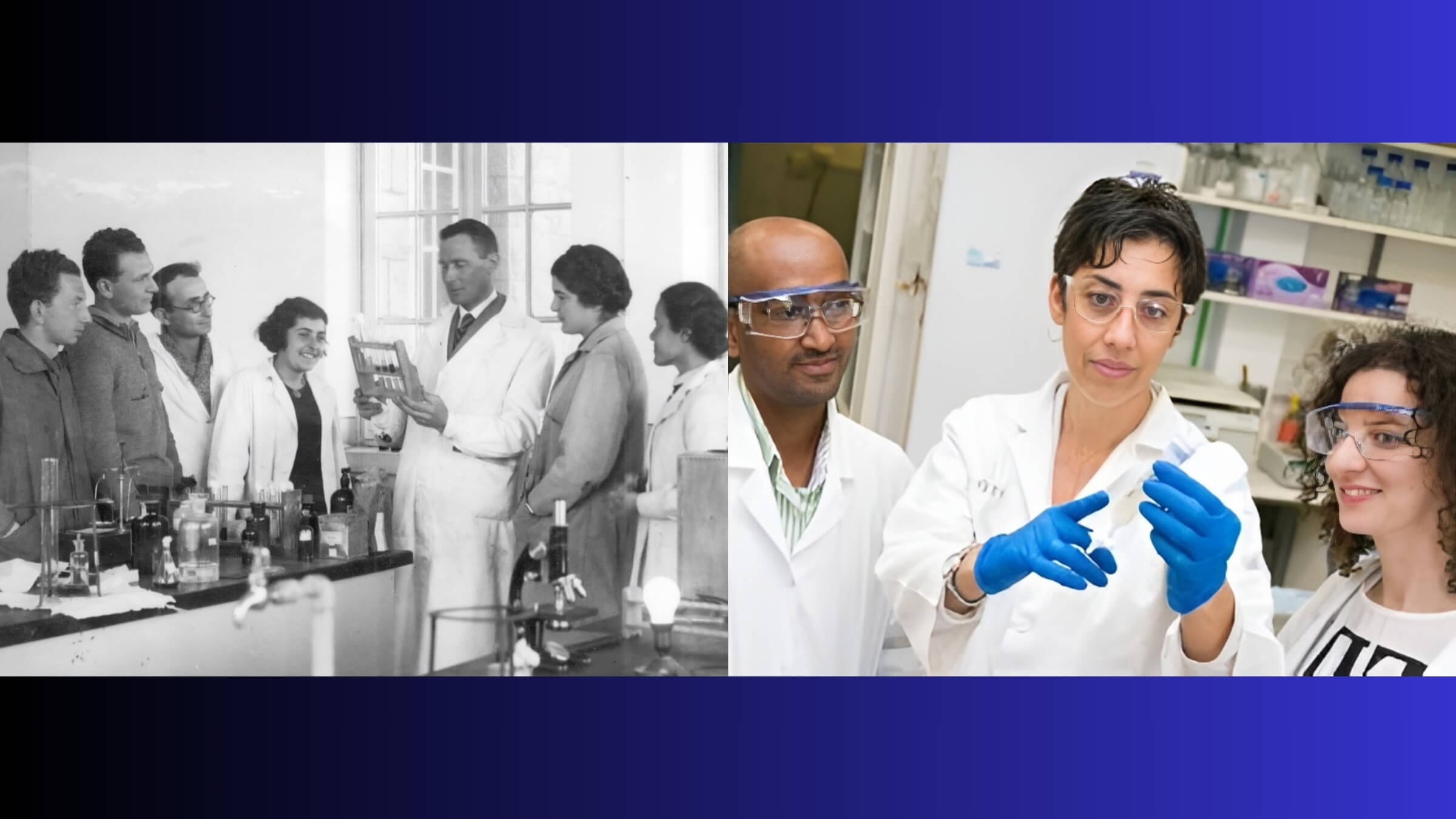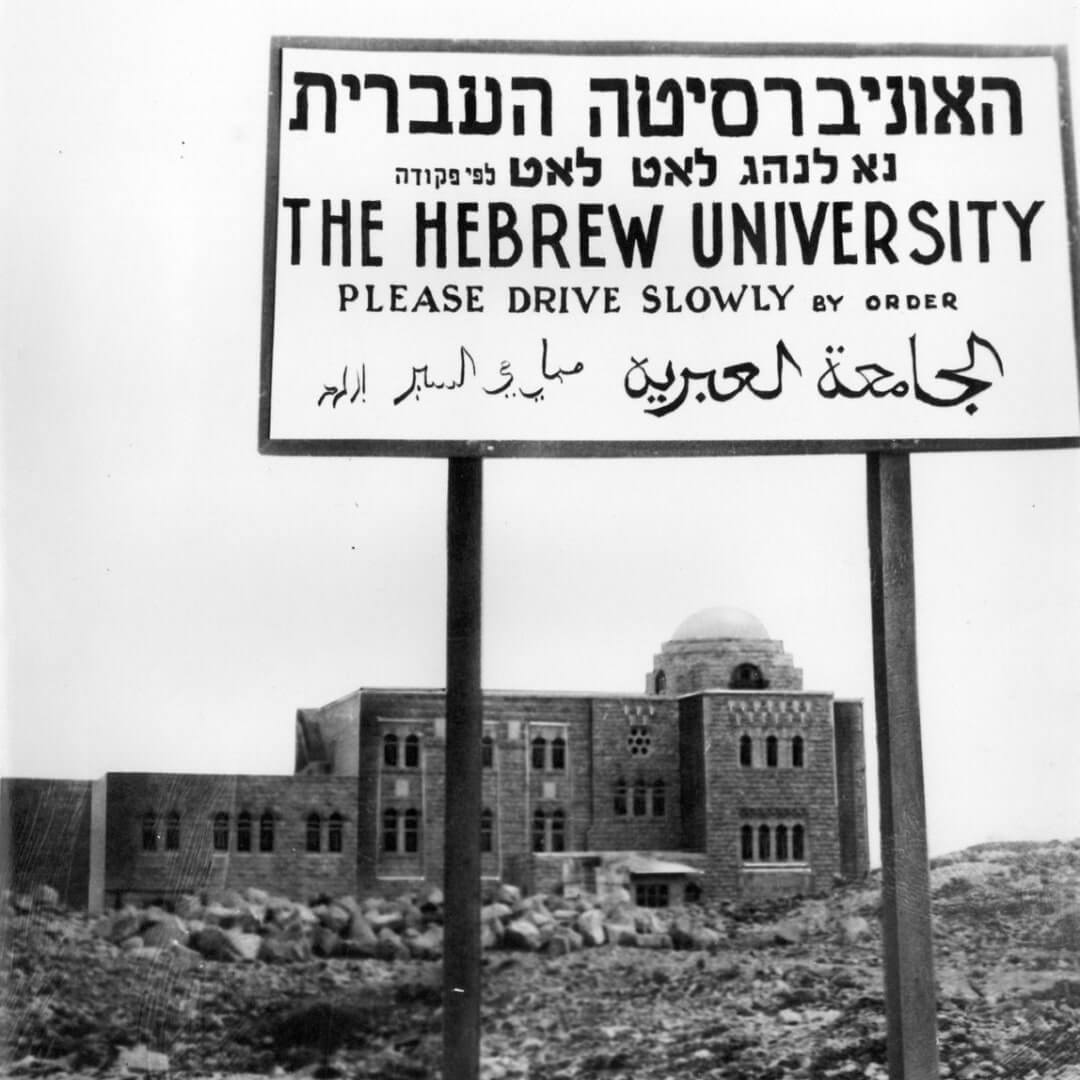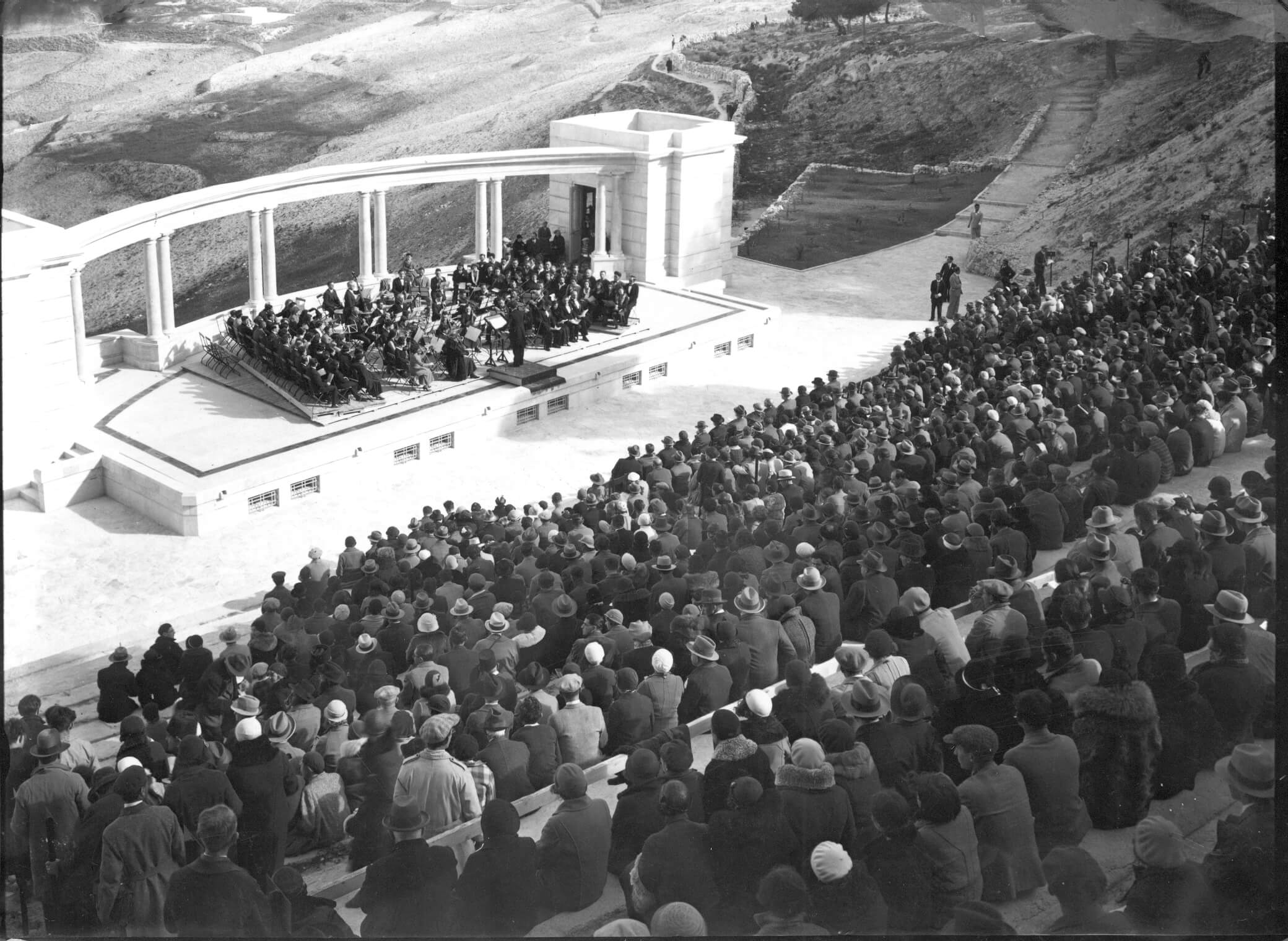Hebrew University: A century of progress
Celebrating 100 years of academic achievement and global contributions

On the 1st of April 1925, in a ceremony attended by dignitaries from across the region and the world, the Hebrew University of Jerusalem officially opened its academic doors.
After decades of thought and over seven years of construction—from the setting of the cornerstones in 1918 to the start of classes in 1925—the University’s official opening marked the start of a new era, setting the stage for the institution to become a beacon of academic excellence and an internationally-renowned incubator of discovery and innovation.
100 years on, the Hebrew University is linked to new inventions and schools of thought that impact on nearly every walk of life; from the foods we plant and eat, the medicines and machines we use to treat disease, the air we breathe, the nature of political and social discourse—among countless other areas where the University has left its mark.
In looking back on the University’s achievements over the past century, we know that for the people of Israel and her friends and supporters around the world, the Hebrew University has become far more than just a center of learning and productivity.
Indeed, the accomplishments reached within its many halls and campuses have been instrumental in charting the forward progress of the State of Israel, a nation blessed with tremendous success even in the face of ongoing challenges and threats to its very existence.
Alongside the founding of the University itself, committees around the world were created to support its development. As such, American Friends of the Hebrew University will also celebrate its 100th anniversary in 2025, marking one hundred years of partnering in growth.

To mark the onset of this historic year, we took the opportunity to speak to top executives at the Hebrew University and its American Friends to hear first-hand why this anniversary is so important for Israel, for the Jewish people, and for the world at large.
Yishai Fraenkel is the Vice President and Director General of Hebrew University, responsible for advancing a vision that he anticipates will firmly establish the University as one of the top centers of higher learning in the world.
As CEO of American Friends of the Hebrew University, Joshua Rednik oversees an ambitious and continuously expanding development effort manifested by what he describes as the “inextricable bond” between the American community and the University.
Both say that what sets the Hebrew University apart is how it is far more than just an academic institution. It has become a pillar of Israeli society, with its success being instrumental in both the founding and remarkable growth of the State of Israel and the modern Zionist movement.
Yishai points out that the initial concept for the Hebrew University can be dated back to the First Zionist Congress in 1897 and that its founding, more than two decades before Israel declared its independence, “can be seen as the first major project of modern Zionism.”
Joshua adds that it would be shortsighted to view the success of the University as solely an Israeli, or even Jewish, enterprise. “The vision of the Hebrew University really is about creating a better world for all people. Whether it’s through developing better medicines, a healthier and more sustainable environment or any of the countless areas with which the University is involved, it is no exaggeration to say that the daily pursuit is about creating a better future for all people to be able to live and thrive together.”
That pursuit to better society is what has helped forge relationships between the University and the international community, driving philanthropic investment in its forward development. “My experience has been that people view support of the Hebrew University as a fundamental way to achieve two meaningful ends: fulfill their commitments to Zionist ideals and improve the world around us,” Joshua says.
Yishai points to specific examples of how the University is charting an academic course that will benefit people far beyond Israel’s borders. “Our motivating vision is to see Israel as a light unto the nations in areas of science and forward-thinking. This manifests itself in essential research in areas including climate science and sustainability but no less so in educating the community on how minority populations can live together or how to advance social justice and greater inclusion.”

Like the early Zionist movement itself, the Hebrew University faced many challenges in its early years, and sadly those challenges have remained an ever-present reality even all these decades later.
As the University prepares to mark this 100th anniversary, Israel finds itself amidst another deeply tragic and increasingly costly war. “Sadly, this is far from the first time where we as a university community have been forced to respond to the pressures of war. The cornerstone of Hebrew University was laid while World War I was still raging and we have been here for every moment of tension,” Yishai says. “But our mission then and today has been to remain resilient and utilize all the means at our disposal to grow and support a diverse and inclusive Hebrew University community, one that reflects the democratic and multi-cultural values of Israeli society.”
Since the beginning of the war over 7,500 Hebrew University students have been called to military-reserve duty and all-too-many people from within the HU community have fallen or were injured in battle.
That sense of dedication is something which both Yishai and Joshua say is the ultimate mark of achievement, and what they believe will carry the University forward over the next century.
“While the miracle of the modern State of Israel might have happened even without Hebrew University, we take incredible pride in the fact that we supported it and were at the heart of making Israel the economic powerhouse and international success that it is today,” says Yishai. “The halls of Hebrew University have truly expanded the boundaries of human knowledge and science. As we now look towards this second century, it’s about doing all we have been doing and much more, with the specific goal of becoming one of the top twenty universities in the world.”
For Joshua, the next century is about harnessing what he believes firmly is the University’s greatest resource—its people. “Without the right people teaching, researching, and leading an institution, nothing else matters. Everywhere you turn in Israel, you will see leaders and achievers who trace their paths directly back to the University. I am very confident that if we continue to focus on our people and maximizing their potential, in 100 years’ time, humanity will look back at this moment and be able to state with certainty that the Hebrew University was instrumental in creating a better world.”













